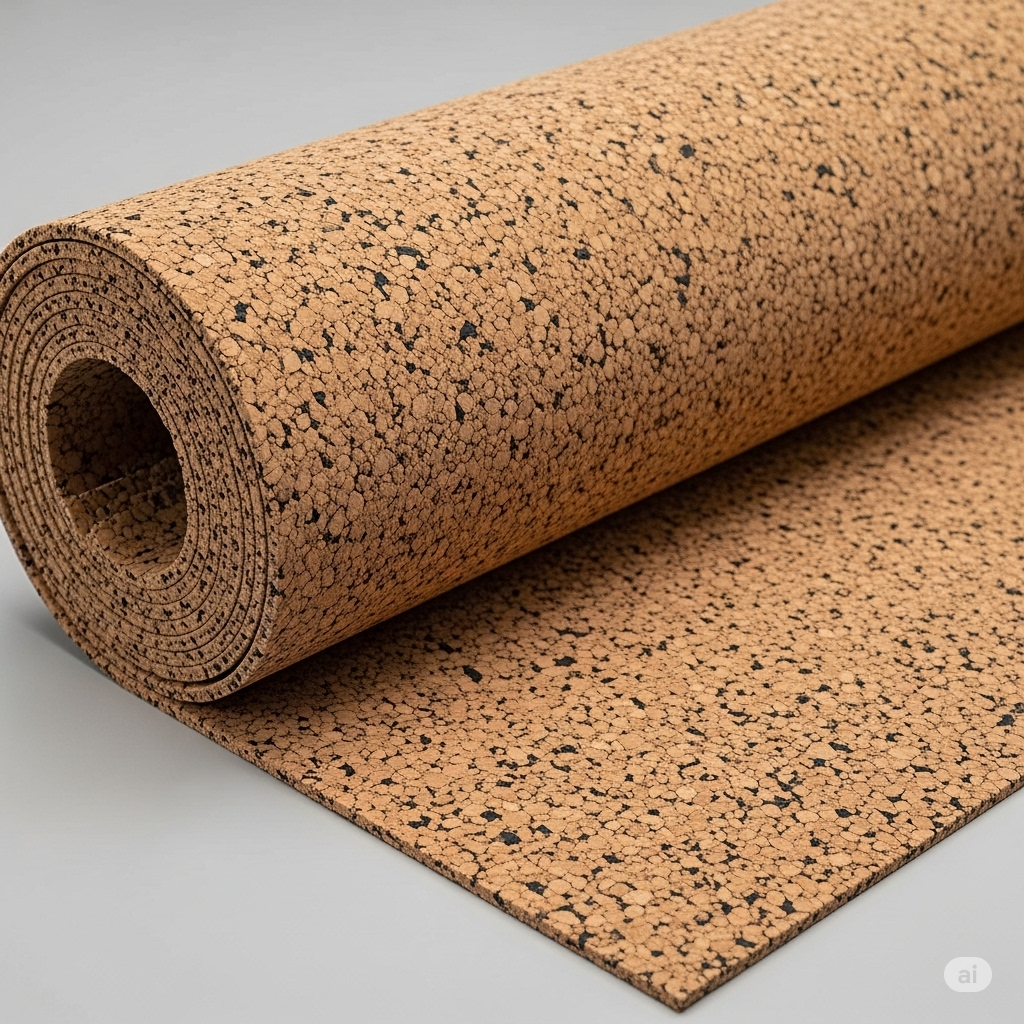A rubberized cork sheet is a versatile composite material that combines the natural properties of cork with the resilience and strength of rubber. It’s an excellent solution for sealing, gasketing, and dampening applications where a flexible yet durable material is needed. Highly compressible and medium oil resistance
- Resilience and Compression: The unique cellular structure of cork allows it to compress effectively under pressure. The added rubber binder gives the sheet excellent “memory“, allowing it to rebound and maintain a tight seal, even if the surfaces it’s sealing are uneven.
- Fluid Resistance: By choosing a specific type of rubber, such as nitrile, the sheet can be engineered to resist oils, fuels, water, and other industrial fluids, making it highly effective for preventing leaks.
- Vibration and Sound Dampening: The blend of these two materials provides a strong ability to absorb vibrations and deaden sound, which is useful in both machinery and construction.
- Durability and Flexibility: The rubber component significantly improves the material’s strength and longevity compared to cork alone. The finished sheet is flexible and easy to cut or shape to fit specific requirements.
These rubberized cork sheets are created by grinding natural cork into granules and then mixing them with a rubber binder. This mixture is then compressed into a block and heated in a process called vulcanization, which chemically bonds the rubber and cork together. The resulting blocks are then sliced into sheets of various thicknesses.
Available Sizes
Roll size – 1m x 10m
Thickness – 3mm, 4mm, 5mm, 6mm
Common Applications
Due to its unique combination of properties, rubberized cork is used in a variety of industries:
- Automotive: Gaskets for engines, oil pans, and gearboxes to prevent fluid leaks.
- Electrical: Seals for transformers and other electrical components to contain insulating fluids and protect against moisture.
- Industrial: General-purpose gaskets, washers, and anti-vibration pads for a wide range of machinery and equipment.
Specifications
| Density | 550 to 650 Kg/m3 |
| Durometer | 50 to 70 Shore A |
| Tensile Strength | 150 PSI / 10.5 Kg/m2 |
| Compression at 400 PSI | 40 to 55 % |
| Recovery, min | 75 % |
| Flexibility, Heat Aged (70hrs/212oF) (F=5) | No Cracks |
| Compressibility (Z) | 35 to 50 |
| Volume change after impression
ASTM No 1 (70hrs/212oF) ASTM No 3 (70hrs/212oF) ASTM Fuel A (22hrs/RT) |
-10 to +10 0 to +25 0 to +10 |
| Compression Set -Method A (22hrs/158oF) | 50% Max |

